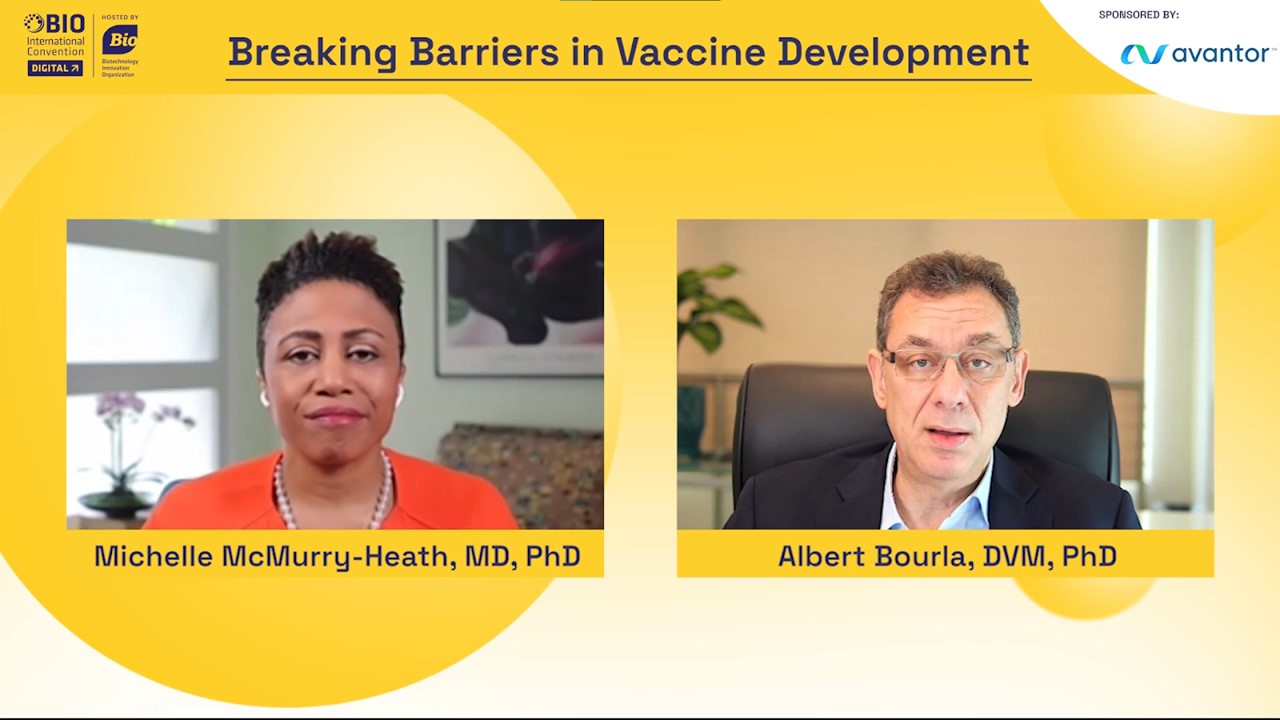Breaking Barriers in COVID-19 Vaccine Production: A Discussion with Pfizer CEO Albert Bourla
Pfizer and BioNTech’s COVID-19 vaccine is one of the most widely used in the world. The vaccines passed through clinical trials and became the first FDA-approved COVID-19 vaccines within a few months of development.
At the BIO Digital 2021 conference, Pfizer Chairman & CEO Dr. Albert Bourla had an engrossing conversation with Dr. Michelle McMurry-Heath, the President & CEO of BIO. Together, they reviewed the success story of Pfizer of being able to deliver an effective vaccine at an unprecedented speed and break regulatory, R&D, and manufacturing barriers.
Determination to Produce Vaccines
It might seem strange, but Dr. Bourla pointed out the final contract that regulates billions of expenses in vaccine development today was not inked until January 2021. The contract was signed after everything was done and millions of doses were sent.
“Time is the essence. Time is life,” he said, emphasizing the contract would take months to sign, but the pandemic won’t wait. So, he virtually shook hands with BioNTech CEO Ugur Sahin via a Zoom meeting and initiated the whole process.
“This is what brought the vaccine. It was the dedication, the determination, that we are purpose-driven organizations. And no matter what, we will work to make that successful.” Dr. Bourla stressed.
Public and Private Sector Collaboration
In the fight against COVID-19, Dr. Bourla said the vaccine wouldn’t have happened without support from the public sector.
“I know that our people will have sleepless nights all the way to 3 o’clock in the morning,… so the data will come to FDA”, and the FDA officers would do the same, working for days to 7 o’clock in the morning and giving them feedback on the data in 2 days”.
“It was because both parties know that billions of people are waiting for the vaccine, and there is a monumental obligation on their shoulders, so they both do their part, and the time of the process was substantially shortened,” he noted.
 Dr. Albert Bourla, in conversation with Dr. Michelle McMurry-Heath
Dr. Albert Bourla, in conversation with Dr. Michelle McMurry-Heath
Designing the Manufacturing Process from Scratch
Pfizer’s goal is to deliver vaccines to every corner of the world, so the price point and quantity of the vaccine were pivotal.
Dr. Bourla said that they implemented a tier price design, giving vaccines at half the selling price to middle-income countries, at cost price for low-income countries, and at a price of a meal for the rest. “But that is the easy part,” he pointed out.
Manufacturing mRNA vaccines was especially challenging because the vaccine has never been produced before. Therefore, Pfizer invented the manufacturing process and equipment from scratch. Moreover, the raw material of the mRNA vaccine vector, the lipid, hasn’t been produced at this scale, so it has become a serious bottleneck at the moment.
With challenges ahead, Pfizer plans to produce 3 billion doses in 2021 and 4 billion in 2022.
Vaccines for COVID-19 Variants? Is a Booster Shot Necessary?
Some of the newly emerged COVID-19 variants have become predominant virus strains out there. Some show stronger transmissibility, and some others have been able to bypass the protection conferred by approved vaccines.
Dr. Bourla said Pfizer’s vaccine had been examined against all current COVID-19 variants, and it has exhibited good efficacy. For the future, it is imperative to constantly check the emerging variant to ensure safety for all. If a variant capable of evading neutralizing antibodies does emerge, then Pfizer can develop a tailored vaccine within 100 days, “just like what we did with the South Africa Variant.”
In addition, Pfizer has performed studies on the need for a booster shot. According to the data collected so far, a booster shot is very likely needed in 8 to 12 months after the second dose, but the best timing to get the shot remains to be determined.
Post COVID-19 Trends
Dr. Bourla pointed out that there is a shift in career paths for talents. He saw a growing number of people going into biotech companies instead of high-tech companies. It might be what they’ve seen in the pandemic, seeing how science has saved the world.
What’s more, COVID-19 has revealed a new way to manufacture products in parallel with research, to structure clinical research centers to make recruitment faster, and to use digital technology to speed up the process. “It changes the way we do things forever.”
©www.geneonline.com All rights reserved. Collaborate with us: service@geneonlineasia.com









